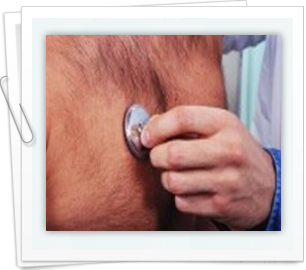Online CPR Certification Blog
care for heart patients
Date: April 22nd, 2013
 There has recently been a new study showing that the risk of a potential heart or diabetes disease patient experiencing heart attack following an emergency chest pain treatment is greatly reduced when they follow up their progress with a physician in a timely manner.
There has recently been a new study showing that the risk of a potential heart or diabetes disease patient experiencing heart attack following an emergency chest pain treatment is greatly reduced when they follow up their progress with a physician in a timely manner.
Chest pains account for arguably the main reason why over 5 million patients visit the emergency room in the United States of America.
Research and statistics review
Researchers made a thorough analysis of data garnered from about 57,000 grownups specifically for this study. These grownups were of about 66 years of age on average and were Canadian citizens previously detected with either diabetes or heart disease.
Only about 17% of these patients underwent an evaluation by a heart specialist within 30 days after making a visit to the emergency room. 58% visited only a general practitioner and 25% had no physician at all to make a follow up on their health situation.
Patients who took the steps to follow up with a heart specialist within 30 days after visiting the emergency room were 21% unlikely to experience heart failure. Those who followed up with a general practitioner were 7% unlikely to experience heart failure. Those patients who neither followed up with a heart specialist nor a general practitioner stood a very high risk of experiencing a heart attack.
Findings explained
The patients who were taken care of by heart specialists received more tests as well as treatment within a period of about three months of visiting the emergency room. They seemed to be experiencing the best health outcomes pertaining to their heart conditions. Patients being seen by heart specialists were less than 15% likely to experience a heart failure or even die within 12 months as compared to those who were visiting general practitioners.
Findings go on and reveal that patients who never sought any follow up at all with any doctor within 30 days had the worst health outcomes regarding their heart condition.
The findings also reveal that there is a great need for patients who frequently experience chest pains to pull up their socks and see to it that they consistently follow up with their physicians on a regular basis. This is because they are at a higher risk of suffering from heart attack. According to Doctor Ko Dennis, who is a renowned heart specialist, such patients should see to it that they make follow ups 30 days after visiting the emergency room.
Dr. ko was keen to point out that although it is reassuring for heart and diabetes patients to be released from the emergency room, it is vital that they follow up with heir physicians so as to drastically reduce their chances of heart failure and potential premature death. Dr. ko further said that patients need to be the best advocates for their health and well being and should not ignore or take it for granted. He also challenged the medical practitioners to enlighten the patients on the need for follow up.
